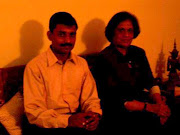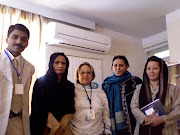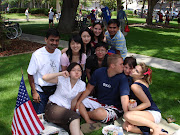Former Minister of Justice, Constitutional Affairs & National Integration
The Democratic
VENUE:
How do you reconcile ethnic and cultural diversity with the concept of mature and cohesive nationhood? Certainly in
I think that is a central challenge facing many of the countries of the developing world.
In
How do you do this within the framework of a single state? In
What we are now contemplating is the changing of that unitary structure to admit of a degree of power-sharing, which is generally associated with quasi-federal structures. Now the question that is asked is: We're all familiar with the phenomenon of independent entities coming together within the framework of a federal state, but is it possible, is it feasible, to envisage a country which has always been a unitary state now adopting, as a result of a political process, quasi-federal structures and mechanisms? That has been a question which has been put to us, very pointedly, in the course of the constitutional initiative which is taking place at the present time in my country.
I need to tell you that one of the problems that we face here is an emotional problem. Not people being cerebral, reflective, thinking consciously about these matters, but an intuitive and emotional response to these very mixed and convoluted issues. The problem there is this: Many people feel, in our part of the world, that federalism is the precursor to the physical dismemberment, or the disintegration of the nation state. If you proceed in that direction the end result would be the break-up of a national state. Now many people are suspicious of federalism in our country. They are suspicious because they feel that this is the thin end of the wedge. Once you begin travelling in that direction how do you stop short of the physical disintegration of the state?
So it is the emergence and the consolidation of structures which have enabled people coming from a diversity of cultural backgrounds to feel at home in their respective nations. It is these mechanisms that have enabled the survival of these entities as unified countries. Now, that may be self-evident when you put the proposition in that way, but one has to overcome a high degree of emotion and convince people of the reality of that position. In doing so I think we have to jettison labels; nomenclature is not the most important thing. There are many countries in the world which do not fall neatly into this category of unitary or federal. There are hybrid structures. So I do not think that we should be slaves to stereotypes or to labels.
In my own country most of the problems are in the northern and the eastern regions where the majority of the people speak the Tamil language. That is, those are regions dominated by a minority. There is a similar situation in
Now, in
Now the situation is complicated in a country like my own where the minorities do not live exclusively in a particular part of the country. They do live in the northern and the eastern provinces, but then there are large numbers of Tamil-speaking people who live in the capital city and its environs. So a viable structure cannot consist simply of the devolution of power to regions. You have to look at the problem of power-sharing at the centre and develop appropriate mechanisms to accomplish that objective.
Then there's this one other element that I need to refer to. These problems in our part of the world cannot be analyzed solely in terms of majority versus minority. What imparts a particularly complex dimension is the minority versus minority aspect. In
It is also important, I think, to make the point that in our part of the world, certainly in
There must be a high degree of public awareness of the value systems that are sought to be embodied in the constitutional arrangements. You need a vigorous press. You need trade unions. Political parties. You need democracy within political parties. You need certain regulatory mechanisms with regard to the finances of political parties. There must be access to justice. The ombudsman or the equivalent of the ombudsman must have a significant role to play. So some degree of egalitarianism is necessary in order to make a success of some of these principles, so one is to have a holistic conception of human development, and the political and economic structures that come into being must reflect that commitment to pluralism, secularism, and the functioning of representative democracy.













No comments:
Post a Comment